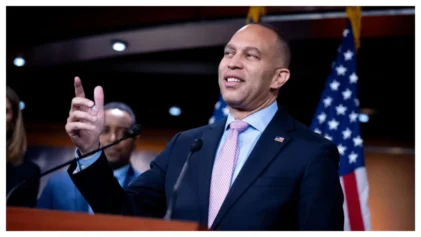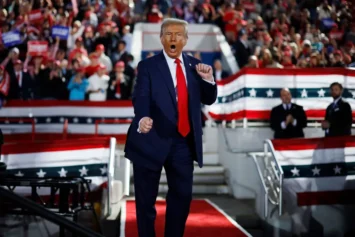Anticipating and sitting through President Donald Trump’s address to Congress Tuesday night was arduous, to say the least. There are so many things that can be said about the speech, not the least being how many lies were told by Trump. I wish I could say that was the most disturbing part, but it was not.
Trump’s speech was the most xenophobic speech by a U.S. president that I can remember. To hear him tell it, barbarians are storming the gates and it’s everybody for themselves. I actually wish we could afford to make fun of him and his rhetoric, but there was a deadly seriousness to what was offered. Trump as president commands many resources. The FBI, ICE and Homeland Security are but a few of the literally thousands of federal law enforcement agencies at his disposal to make his hateful vision into U.S. federal policy.
It was not just that Trump went after immigrants from the global South* as the alleged source of crime. Nor was it that he reiterated the known untruth that terrorism in the U.S. is mainly perpetrated by people coming from outside the country. It was the cynical manipulation of the relationship of African-Americans and immigrants from the global South that really caught my attention.
But, first things first. At no point did Trump mention the Russian mafia. This is remarkable because it is the most feared criminal organization in America and the largest in the world, according to Fortune magazine, one that has carried out multiple killings on our soil. But, listening to Trump, one would get the impression that all crime originates south of the Rio Grande in South and Central America. It also is remarkable because crime carried out by immigrants, whether documented or undocumented, does not constitute the major source of crime and violence in the U.S. That would be native-born Americans, by a HUGE margin.
A second point is that Trump lies when it comes to discussing terrorism. The major source of terrorism in the U.S. since 9/11 has been right-wing, white-supremacist individuals and organizations, not Muslim terrorists. To this, we must add that most domestic acts of terror carried out by Muslims have been the acts of individuals legally in America.
Now, however, let’s get to the cynicism. Trump nuanced the xenophobia by playing up the alleged threat immigrants from the global South constitute for African-Americans. It was no accident that Trump used examples of alleged criminal activities by immigrants against African-Americans.
Just as the Trump administration is working overtime to split up organized labor, on Tuesday night, evidence was displayed of an effort to create a wedge between African-Americans and immigrants from the global South, suggesting that such immigrants are our competitors as well as being a threat to our very existence. This was smooth and well-choreographed but clearly something that is not the truth and, as such, was quite demagogic.
Immigrants are not closing down factories and other workplaces. They are not the major sources of crime and violence in African-American communities. The immigrants that Trump wishes us to focus upon are those from the global South, many of whom are coming to these shores as a direct result of the economic, political and military policies (and actions) of the USA. This contrasts with why East Europeans, for instance, come here. And the fact that Trump never seems to get around to mentioning European immigrants is not representative of a memory lapse but rather a calculated effort to focus the attention of non-immigrants on immigrants from the global South as our alleged enemies rather than focusing on multi-national corporations and the capitalists who run them.
Hopefully, we are not foolish enough to be played.
———————————–
Bill Fletcher, Jr. is the former president of TransAfrica Forum. Follow him on Twitter, Facebook and at @billfletcherjr
*The Global South is a term that has been emerging in transnational and postcolonial studies to refer to what used to be called the “Third World” (i.e., countries in Africa, Asia, Latin America), “developing countries,” “less developed countries,” and “less developed regions.”


